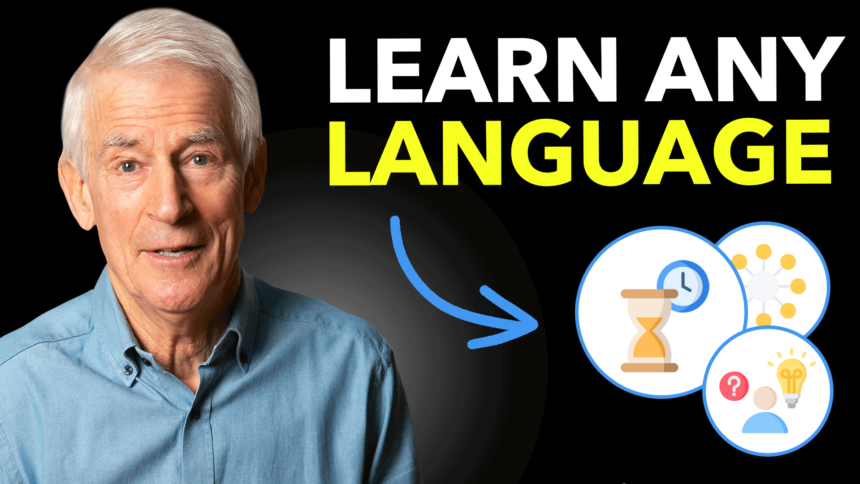Language learning can feel overwhelming at first, but with the right approach, it can become a rewarding and fulfilling experience. While I may not be the most proficient language learner, I have achieved success in multiple languages. Today, I want to delve into six key principles that have guided my language-learning journey and share how to truly learn a language in a way that is effective and enjoyable.
The Six Principles for Language Learning Success
Focus on Patterns, Not Details
One of the most impactful realizations for me was understanding the importance of patterns over details. Many language learners fall into the trap of trying to memorize declension or conjugation tables, which can create a false sense of progress.
Instead, allow your brain to naturally absorb patterns. Research suggests that recognizing patterns is crucial for language acquisition, more so than intelligence or specific linguistic abilities. Exposure to patterns in various contexts helps your brain intuitively identify patterns, leading to more accurate language usage over time.
For instance, I struggled with Russian declensions and endings, but through immersing myself in comprehensible Russian content, I began to internalize these patterns more naturally. Remember, our brains are wired to recognize patterns, not to memorize details.
Aim for Intensity of Input
To establish a strong foundation, focus on intensive listening and reading. The more understandable and meaningful language input you consume, the quicker you’ll start recognizing and internalizing language patterns. This approach has proven effective for me in languages like Mandarin, Russian, and even Romanian, where concentrated effort and time investment led to significant progress.
For optimal results:
– Engage daily with a variety of materials. LingQ offers podcasts, news, books, YouTube videos, etc., in your target language.
– Focus on comprehensible and engaging input
I often emphasize that this level of intensity distinguishes effective learning from more casual approaches like using Duolingo. Tools lacking meaningful input won’t provide the necessary depth to truly learn a language.
Believe in Yourself
Confidence is crucial in language learning. Mastering the first language can be challenging as you may doubt your ability to achieve fluency. Once you do, however, it becomes easier to have faith in the process and trust in your capability to tackle new languages.
Think of it as traveling a familiar route for the second time—it feels shorter when you know what to expect. Likewise, when learning another language, maintain confidence even during slow progress or setbacks. Celebrate small wins and remind yourself that consistency leads to success.
Be Flexible
Flexibility is a key but often overlooked trait in successful language learners. While our brains may lose some plasticity with age, we can counteract this by staying open to:
– New sounds and pronunciations.
– Unfamiliar grammar structures.
– Ways of thinking that may seem foreign or counterintuitive.
Avoid labeling unfamiliar patterns as “odd” or “incorrect.” Embrace them as part of the learning journey. Being adaptable and open-minded will significantly enhance your learning effectiveness.
Don’t Rush to Speak
One of the common misconceptions in language learning is the belief that you must start speaking immediately. In reality, speaking ability should develop naturally. Your fluency in speaking is a result of extensive input and pattern recognition.
Speaking is not the sole path to language learning, and it’s essential to understand that it is not the top priority. Many individuals enjoy a language by simply listening and reading content in its original language. Some are drawn to a language for its cultural and linguistic aspects.
While speaking another language is rewarding, it does not need to be rushed in the early stages of learning. When the time is right, you will be prepared to speak confidently without premature pressure. This approach has allowed me to enjoy the learning process without the constant need to perform.
Stay Curious
Curiosity is the common thread that ties everything together. Genuine interest in the language, culture, and people will drive your learning and sustain your motivation. For me, language learning is more than just communication—it’s about connecting with others and exploring the richness of their worlds.
Curiosity motivates us to delve into meaningful content in our target language, appreciate cultural nuances, and persevere through learning challenges.
Final Thoughts
These six principles—emphasizing patterns, engaging in intensive input, believing in yourself, maintaining flexibility, avoiding premature speaking, and nurturing curiosity—have shaped my language-learning journey. They have empowered me to approach each new language with confidence and purpose.
If you are wondering how to truly learn a language, start with these principles and tailor them to your own journey. Language learning is not a race; it is an ongoing discovery and connection. What strategies have proven effective for you in your language-learning journey? Let’s continue the conversation.






